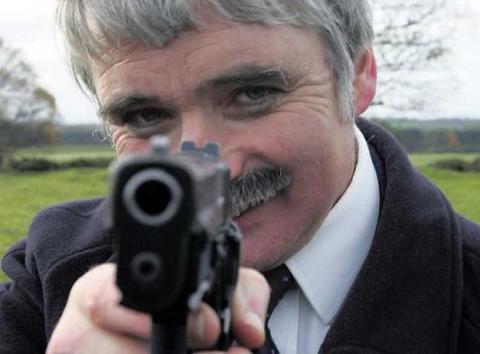O’Dea’s real shame ignored by our pathetic leaders

The Willie O’Dea controversy underlines the infantile nature of our politics.
For the first time in years, a minister has been forced from office because of an absence of contrition over a sordid smear he perpetrated against a political opponent.
There were questions about perjury underlying that smear, but the available evidence suggested that there had been no perjury.
This essentially was a matter of style and decorum, of ‘letting down politics’ and of ‘damaging the political system’.
These are essentially puerile issues at a time when the government has taken decisions and actions that affect the lives of hundreds of thousands of people, that will deepen vicious inequities in society and that may impoverish the country for decades, or even generations, to come.
No one resigned over these. No demands were made by the minor party in government for heads over these. No media tsunami has erupted over these. No claims of ‘‘letting down politics’’, no claims of ‘‘damaging the political system’’.
And appropriately so, for our politics and our political system is tolerant of - or even indifferent to - rampant social damage and the infliction of lasting social harm. O’Dea deserved to be driven from ministerial office - indeed, from politics altogether - for issues far more serious than his comments about Maurice Quinlivan, the Sinn Féin councillor in Limerick - however odious they were.
In April 2007, weeks before the last general election, O’Dea told the Limerick Leader that money was ‘‘no object’’ to the implementation of the regeneration plans for the deprived areas of that city. The commitment was to spend €1.7 billion on the project. This had arisen from the wilful neglect of some of the country’s most deprived communities in the Limerick city area, such as Southill, Moyross and King’s Island.
Directly arising out of the appalling social conditions that persisted for decades in those areas, the phenomenon of vicious gangland feuding has wrecked the reputation of the city.
In 2007, unemployment rates in these areas were running at four times the national average - even when the national average was very high - and 23 per cent of homes were lone-parent households. About half the adult population had either no formal education at all, or education only to primary level.
There is an apartheid division in Limerick, with the working class corralled in horrid, suffocating estates in those deprived areas of the city. The regeneration plan was meant to address all that - or so it was promised for years by O’Dea and his predecessors.
This plan was sparked by another wave of vicious killings in the city. Suddenly there seemed to be an appreciation that criminality was linked to social conditions, and the government promised to change all that. O’Dea was the mouthpiece, and the one who made those false promises.
Now, which was worse:
O’Dea making the nasty brothel jibe against an opposition candidate in the local election campaign, or O’Dea making false promises to the people of Limerick ravaged by an unjust social system, and then cynically abandoning those promises and allowing huge social injustice to persist for decades?
What is it about our politics that essentially ignores social devastation, while getting indignant about issues more to do with decorum than anything else?
Look at the Greens, if that spectacle is not too repellent on a Sunday morning. Suddenly, at last, they have stood up to Fianna Fáil. But over what?
There was no question of them standing up to Fianna Fáil over cuts in social welfare, cuts that exceeded the deflation in prices relevant to welfare recipients. No question of them standing up to Fianna Fáil over cutting the pay of public servants earning less than €30,000 a year.
No question of them standing up to Fianna Fáil over the ending of dental treatment for poor people; over the abolition of most of the community development programmes that cost very little, yet were the lifeline for people in many poor areas; over the ravaging of hundreds of schools around the country by cutting the number of teachers and special needs teachers; over the abandonment - yet again - of promises on overseas development aid for the poor of the world.
And what of the banks? Billions of euro poured into the banks to save the economy, while the banks refuse to save the economy. Billions of euro that future generations will have to repay - maybe as much as €40 billion, when the sums are finally calculated. Billions of euro to rescue a social system that has caused such harm, suffering, diminishment and injustice to so many.
No, the Greens found their bottle only over O’Dea’s decorum, or lack of it. Group hugs in cabinet were enough to resolve the Greens’ unease over social devastation, but the group hug would not suffice over O’Dea’s faux pas. It’s all so pathetic.
